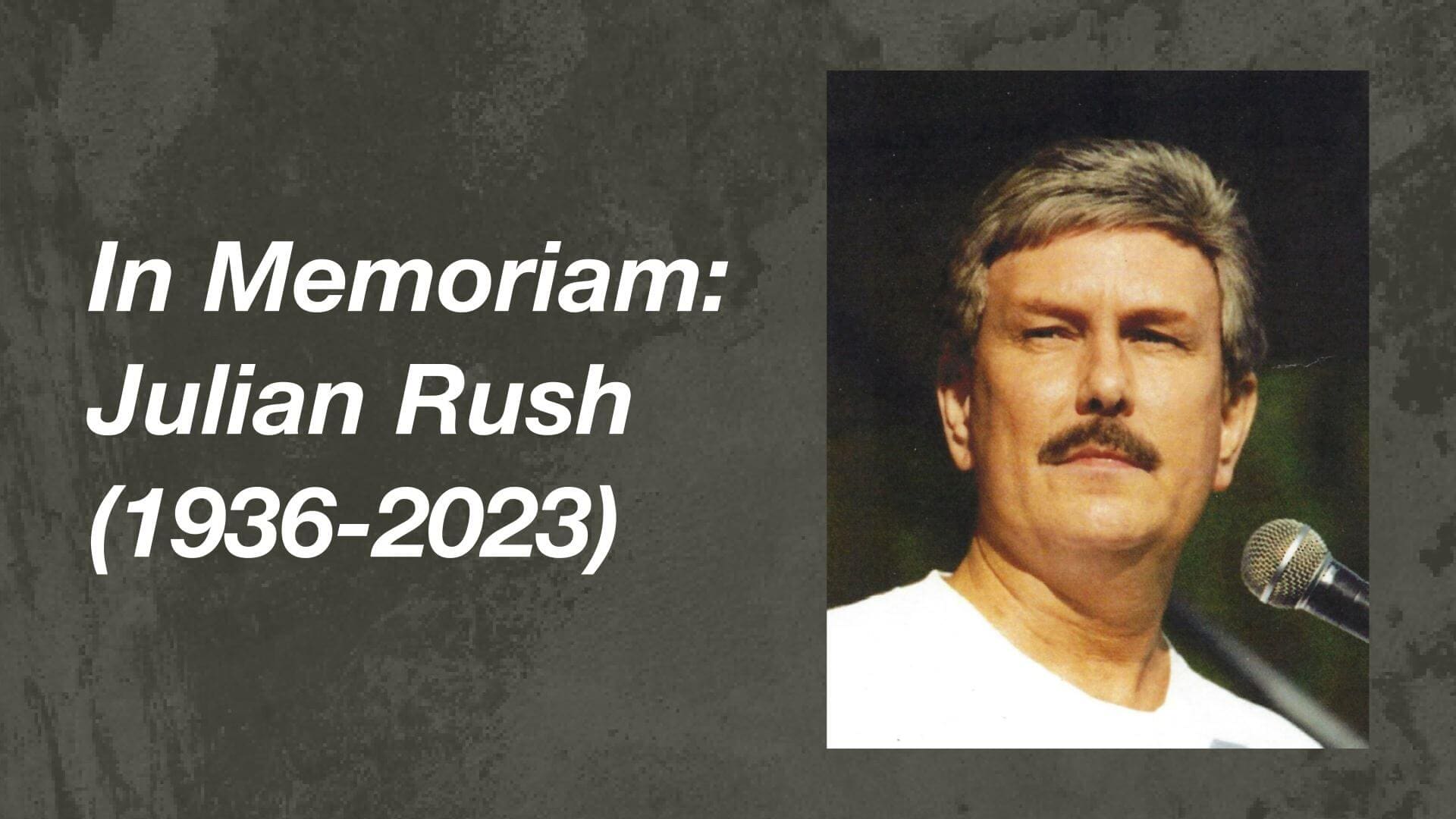An essay by David Duffield, Coordinator, Colorado LGBTQ History Project
I remember meeting Julian Rush in 2015 or 2016 when we worked together as he became a grand marshal in the Pride Parade that year. He was an inspiring human being. He told me about his youth growing up in Mississippi and what a segregated society looked like and how it made him feel as a young person. He grew up in a society wrought with the effects of both racism and homophobia. He told stories of going to places where men would cruise for sex and for companionship. He talked about what it was like to see his Black gay friends segregated from the white ones. He remarked about how racism and homophobia drove people apart.
Julian studied at Millsaps College in Jackson. Julian thrived in musical studies and graduated with high marks. After college he moved to Dallas and enrolled in Perkins School of Theology at Southern Methodist University. There he completed his Master of Sacred Theology degree and stayed there more years to get a Masters in Christianity and the Arts. Julian told me about getting married in the 1960s. His first child was born in 1965. He decided upon youth ministry because that's where he felt like he could make change in the world.
He worked at the First United Methodist Church in Fort Worth and later moved to Denver to study at the University of Denver to get a Master of Arts and Drama. During this time, he worked with a Methodist church as a youth programmer. He next moved to a church in Colorado Springs to work as a youth coordinator.
In the late 1970s, he began working as a youth director in Boulder at the First United Methodist Church. While at the church, he began to deal with his own sexuality. For many years he felt as though he was trapped and living what felt like was the double life. He later called coming out as gay one of the bravest acts of his life, while also one of the most turbulent. He had the support of the youth but unfortunately his decision to come out rocked the church and he was fired from the position. With the support of bishops within First United Methodist Church he was able to find an unpaid posting at St. Paul’s Methodist Church in Denver.
After a brief stint in Emporia, Kansas with his partner Larry Anderson, Julian returned to Denver to help with efforts around HIV/AIDS as the Colorado AIDS Project was founded in the early 1980s. Julian became executive director of the new organization. His name almost became synonymous with the Colorado AIDS Projects during the 1980s and 1990s. He noted that the early days of the Colorado AIDS Project were very hectic. There was much fear and confusion and very little accurate information about AIDS. Frantic clients were desperate for help. Many people living with AIDS were shunned by family, friends and institutions. The fledgling Colorado AIDS Project initially struggled to respond to the crisis. Oftentimes they weren't sure if anyone was going to show up to help. However, in one of the most poignant moments of his life, shortly after CAP first opened its offices at St. Paul’s, they saw not just a couple of people, but dozens, then hundreds of volunteers lining up to help.
In Julian’s 17 years with the Colorado AIDS Project, the organization grew and grew again. As need increased, multiple AIDS service organizations emerged across the state of Colorado. Julian noted, as a minister, attending many funerals and seeing such suffering by the late 1980s led to a kind of fatigue. He called it burnout.
Julian left the Colorado AIDS Project in 2000 and eventually returned to his first love of music. He retired to Arizona in 2007.
Among the greatest lessons that he taught me was when we come to live our authentic lives, living bravely and openly and loving unconditionally, we are bound by something greater than ourselves.
The last time I saw him in person, he was riding in a float down Colfax Ave next to the Colorado State Capitol as a grand marshal in the Denver Pride Parade. The smile on his face was exceptional.
I believe that in the hardest of times, heroes are not born but made, forged from collective need and want as well as great anguish. We must not forget how liberating and frightening Julian’s choice to come out and live authentically was. After much struggle, he lived his life openly and proudly. And in his service to others through his ministry and his work with the Colorado AIDS Project, he moved people heroically through some of the darkest times in recent memory.
Julian also noted that to face such hardship awakens a potential in each one of us. When we live our open, authentic lives, in service to others, and work towards a greater goal or cause, we see manifold movement of justice towards a righteous end. Each life has meaning, and in each memory, a story of countless lessons for both legacy and heritage, like our heroes, are also forged in the passage of the story.
Rest in peace, my dearest man.

